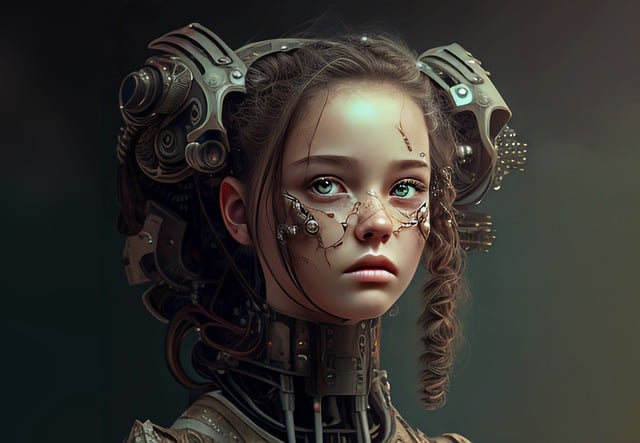# AI Technology Breakthroughs: Exploring Innovations That Are Revolutionizing Our Daily Lives
Artificial Intelligence (AI) has rapidly evolved from a niche area of computer science into a transformative force that is reshaping various aspects of our everyday lives. With advancements in machine learning, natural language processing, and computer vision, AI technology breakthroughs are not only enhancing efficiency but also creating entirely new paradigms in how we interact with the world. This article delves into some of the most significant innovations in AI and their implications for our daily routines.
## Transforming Communication with Natural Language Processing
One of the most remarkable breakthroughs in AI technology is the advancement of Natural Language Processing (NLP). This subfield of AI focuses on the interaction between computers and human language, enabling machines to understand, interpret, and generate human language in a valuable way. The impact of NLP can be seen in various applications, from virtual assistants like Siri and Alexa to customer service chatbots that provide immediate assistance.
Notably, the development of models such as OpenAI’s GPT-3 has pushed the boundaries of what is possible in text generation and comprehension. Users can now engage in conversations with AI that feel increasingly human-like, allowing for more natural interactions. This evolution not only improves user experience but also streamlines workflows across industries. For instance, businesses are leveraging AI-driven chatbots to handle customer inquiries, reducing wait times and freeing up human agents for more complex tasks.
Moreover, NLP has significantly enhanced accessibility. Tools that convert speech to text and vice versa have opened doors for individuals with disabilities, allowing them to communicate more effectively. As these technologies continue to improve, the potential for inclusivity expands, making communication easier for everyone, regardless of their circumstances.
## Revolutionizing Healthcare with Predictive Analytics
Another area where AI technology is making a profound impact is healthcare. The advent of predictive analytics powered by AI is transforming how medical professionals diagnose and treat patients. By analyzing vast amounts of data—from electronic health records to genetic information—AI can identify patterns that may elude human practitioners. This capability allows for early diagnosis of diseases, personalized treatment plans, and improved patient outcomes.
In recent years, AI algorithms have demonstrated remarkable accuracy in predicting conditions such as diabetes, heart disease, and even certain types of cancer. For instance, IBM’s Watson Health utilizes AI to analyze medical literature and patient data, providing healthcare providers with evidence-based treatment recommendations. Such innovations not only enhance decision-making but also empower patients with more information about their health.
Additionally, AI-driven tools are streamlining administrative tasks within healthcare systems. Automating scheduling, billing, and patient follow-ups reduces the burden on healthcare staff, allowing them to focus on patient care. As a result, the overall efficiency of healthcare delivery improves, potentially leading to shorter wait times and better service for patients.
## Enhancing Daily Life with Smart Home Technology
Smart home technology represents another frontier where AI breakthroughs are reshaping everyday experiences. The integration of AI into home automation systems has made it possible to create environments that are not only convenient but also energy-efficient. Smart devices, such as thermostats, lighting systems, and security cameras, can learn user preferences and adapt accordingly, providing a personalized living experience.
For instance, smart thermostats like the Nest Learning Thermostat analyze usage patterns to optimize heating and cooling schedules. This capability not only enhances comfort but also results in significant energy savings over time. Homeowners can monitor and control their energy consumption remotely, contributing to a more sustainable lifestyle.
Security is another critical aspect where AI-powered smart home devices excel. Advanced surveillance cameras equipped with facial recognition technology can differentiate between familiar faces and strangers, sending alerts only when necessary. This level of sophistication helps homeowners feel more secure and in control of their environment.
Furthermore, the rise of voice-activated assistants has made interacting with these smart devices more intuitive. Users can control their home environment through simple voice commands, making technology more accessible to individuals of all ages. As smart home technology continues to evolve, it promises to enhance comfort, security, and efficiency in our daily lives.
## Conclusion: The Future of AI in Everyday Life
The breakthroughs in AI technology are undeniably revolutionizing our daily lives, from how we communicate and receive healthcare to how we manage our homes. As these innovations continue to develop, the potential for AI to enhance our experiences grows exponentially. However, it is essential to approach these advancements with a critical eye, considering ethical implications and the need for responsible AI development.
In the coming years, we can expect even more sophisticated applications of AI that will further integrate into our lives. As we embrace these changes, it is crucial to remain informed and engaged in discussions about the role of AI in society. Ultimately, the goal should be to harness these technologies to improve our quality of life while ensuring that they are used responsibly and ethically.











